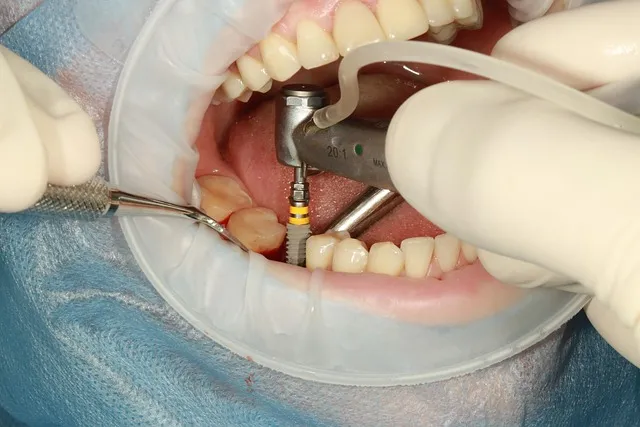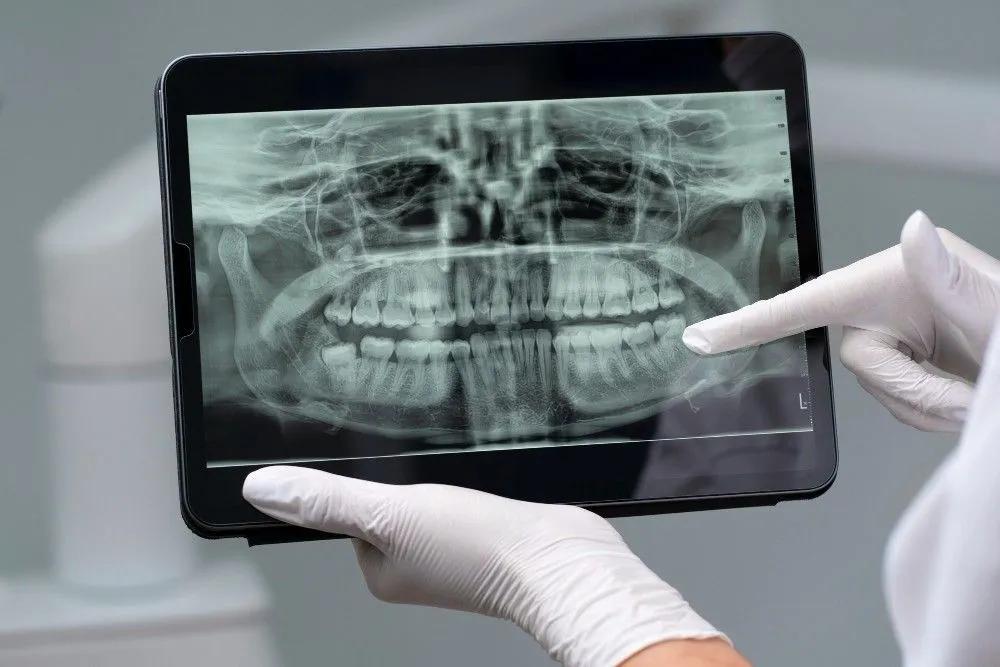You’re sitting in the dentist’s chair, and the words “deep cleaning” come up. It sounds routine, even helpful—who doesn’t want cleaner teeth? But here’s what they don’t always tell you: it’s not always necessary, and it’s not without risks.
Most people associate deep cleaning with squeaky-clean teeth, healthier gums, and no more bad breath. But that’s only half the story. The disadvantages of deep cleaning teeth are real, and for some, they’re more than just a little soreness.
This blog isn’t here to scare you. It’s here to keep it real. We'll walk you through what this procedure actually involves, the risks you probably haven’t heard about, and whether it’s really worth it, especially if your gums are otherwise healthy.
The 5 Disadvantages of Deep Cleaning Teeth Your Dentist Didn't Tell You
Let’s get into the risks of this common dental procedure. Dentists may not always spell these out unless you ask. But if you’re considering a deep clean, here’s what you need to weigh.
1. Can Cause Nerve Damage (Though Rare)
Yes, it’s rare, but it’s not impossible. If instruments go too deep or there's a misstep, there’s a slim chance of nerve irritation or long-term discomfort. It’s one of the more serious risks of deep cleaning teeth.
2. Gums Might Recede More
This one's more common than you think. As plaque is removed and inflammation goes down, your gums may shrink back slightly. This can expose more of the tooth’s surface, sometimes even the root. That sensitivity afterward? This is why.
3. Gums May Not Reattach Fully
A big reason dentists do this treatment is to encourage the gums to reattach to the teeth. But here’s a dose of reality: that doesn’t always happen. Especially if the damage was advanced. So, you might go through the process and still have gaps between your teeth and gums.
4. Increased Sensitivity to Hot and Cold
Expect pain after deep teeth cleaning, particularly when sipping coffee or biting into ice cream. This sensitivity usually fades, but in some cases, it lingers.
5. Risk of Infection
For people with heart conditions, diabetes, or autoimmune disorders, the risk of infection jumps up. Deep cleaning can allow bacteria to slip into the bloodstream. That’s why some are prescribed antibiotics beforehand.
Let’s look at a comparison table to help digest the pros and cons.
Deep Cleaning – Pros vs Cons
|
Advantages |
Disadvantages |
|
Stops gum disease from progressing |
May cause gum recession |
|
Helps reduce chronic bad breath |
Might not ensure gum reattachment |
|
Cleans beneath the gumline thoroughly |
Can cause pain or sensitivity post-procedure |
|
Protects tooth roots from further exposure |
Slight risk of nerve damage |
|
May prevent future tooth loss |
Possible infection if immunity is low |
What Exactly is Deep Teeth Cleaning? (For the Unversed)
A deep teeth cleaning isn’t your regular six-month polish-and-fluoride visit. It’s something more. Dentists usually recommend it when plaque and tartar have crept below your gumline and started to cause damage. If ignored, this buildup can lead to gum disease—first, gingivitis, then periodontitis, and eventually, even tooth loss.
This process is called scaling and root planing (SRP). It targets deep pockets between your teeth and gums, those you can’t reach with brushing and flossing alone. Think of it like pressure-washing your gums. Dentists use manual scalers and ultrasonic tools to scrape away plaque and tartar. Then, they smooth your tooth roots so your gums can try to reattach.
But here’s the thing: even though it’s a common treatment, it’s not without risk.
What Happens During a Deep Teeth Cleaning?
Your dentist doesn’t just grab a scraper and start digging. Deep cleaning usually takes two or more sessions, depending on how bad the buildup is. They’ll numb your gums with a local anesthetic before anything starts.
During scaling, they remove hardened tartar (calculus) from the surface of the teeth and beneath the gumline. After that, they do root planing, where they smooth the roots of your teeth to make it harder for bacteria to stick again.
Expect some bleeding. That’s normal. Your dentist may even prescribe antibiotics afterward, especially if your immune system is weak or if you’re at higher risk of infection.
Also, let’s talk pain: Peak pain occurs 2–8 hours post-SRP, lasting about 6 hours, and generally fades by the next morning. This is standard, even in less severe cases.
Pain and Sensitivity After Deep Cleaning: The Most Common Issue
Pain is common. Most people feel it peaks about 2 to 8 hours after the procedure. It can last about 6 hours, but typically tapers off by the next morning. The area around the roots becomes more sensitive, especially to heat and cold.
If your gums are already receding, expect more pain than usual. You might also notice slight bleeding or swelling for a few days. This doesn't always mean something’s wrong. It’s just your body reacting to the trauma of the cleaning.
How to Minimize Risks Before and After the Procedure
Here’s where you take charge. A few steps can make the procedure smoother and the healing process easier:
-
Discuss your health history with your dentist, especially if you’re diabetic, pregnant, or immunocompromised.
-
Use a soft-bristled toothbrush starting the next day. It’s gentler on your gums.
-
Avoid acidic or crunchy foods for a few days. Think mashed potatoes, soft eggs, and oatmeal.
-
Saltwater rinses can help soothe swollen gums. Warm water, a pinch of salt. Easy and effective.
-
Take OTC pain relief like ibuprofen right after the procedure.
When in doubt, call your dentist. If pain lasts beyond 7 days, it’s worth checking in.
How to Minimize the Risks of Deep Cleaning
Even if the procedure is necessary, there are ways to reduce its negative effects. These techniques help improve recovery and reduce long-term issues:
1. Use desensitizing toothpaste
Products like Sensodyne can help dull sharp sensitivity over time.
2. Antibacterial rinses
Your dentist may suggest chlorhexidine rinses to reduce infection risk.
3. Stop smoking
If you smoke, healing will slow down, and risks go up. Deep cleaning might work better if you quit before or shortly after.
4. Schedule follow-ups
This isn’t a one-and-done. Dentists need to track how your gums respond. Don’t skip those check-ups.
When Is Deep Cleaning Not Necessary?
In some cases, deep cleaning might be over-prescribed. You might not need it if:
-
Your gums are only mildly inflamed (early gingivitis) with shallow gum pockets
-
There’s no evidence of bone loss or tooth mobility
-
Your overall oral hygiene has improved with regular brushing and flossing
If you're unsure, it’s always okay to seek a second opinion.
Conclusion
There’s no doubt that deep dental cleaning can help treat gum disease and prevent future tooth loss. But the disadvantages of deep cleaning teeth shouldn’t be brushed aside. Sensitivity, gum recession, pain, and risk of infection are all part of the equation, even if they don’t always happen.
If your dentist recommends this treatment, don’t just say yes. Ask questions. Understand the condition of your gums. Know if you really need it. The NIH even notes that there’s no strong evidence proving permanent tooth or gum damage from these procedures, but being informed helps you prepare better.
Deep cleaning isn’t bad. But it’s not casual, either. Know what you're signing up for, and make the right call for your dental health.
Related: Dental Cleaning: The Importance of Regular Teeth Cleaning
अक्सर पूछे जाने वाले प्रश्नों
Is deep teeth cleaning the same as a regular cleaning?
No. Regular cleanings remove plaque above the gumline. Deep cleanings target buildup below the gumline using scaling and root planing.
What’s the difference between gum scaling and root planing?
Gum scaling removes tartar from below the gumline. Root planing smooths the tooth roots to help the gums reattach and stay tight.
Is deep cleaning necessary for healthy gums?
No. If your gums are healthy and the pocket depth is under 3 mm, routine cleanings are enough. Deep cleaning is only for advanced gum disease.
Can deep cleaning affect your overall health?
Yes, especially if you’re at risk. Bacteria can enter the bloodstream. That’s why some people are prescribed antibiotics to lower infection risk.
Can deep cleaning damage teeth or gums?
Not typically, but aggressive scaling or improper technique can wear down root surfaces or irritate gums. Stick with experienced professionals.
Is deep cleaning teeth worth it?
If you have moderate to severe gum disease, it’s absolutely worth it. But if your gums are healthy or only mildly inflamed, it may not be necessary.
How often should you get deep cleaning?
Only when recommended by your dentist—usually once per year or every few years, depending on gum health. It's not a routine cleaning.
लेखक





